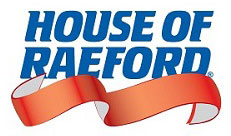
Brookland-Cayce’s James Brown is Keep the Midlands Beautiful Outstanding Green Educator of the Year

From Dawn Kujawa – Lexington School District Two Comunications Director.
James Brown is passionate about science and the environment, and he’s passing that enthusiasm along to his Lexington Two high school students.
Brown was recently named the 2019 Outstanding Green Educator of the Year by Keep the Midlands Beautiful Foundation. We asked the fourth-year AP environmental science teacher at Brookland-Cayce High about his latest project, as well as others he has been involved with to benefit local parks and waterways.
You do so many projects out in the community with your students. What are you working on now?

Brown: “My students’ current community-based initiative involves building an urban garden that will increase access to fresh vegetables for students, families, and the community surrounding Brookland-Cayce High School who experience food insecurity. Students are tasked with researching best practices involved in agricultural and urban gardening while evaluating how to maximize harvest output by testing various growing methods and soil/water conditions.”
What are some of the other projects you and your students have worked on?
Brown: “We’ve worked with Lexington County Stormwater Consortium to tag stormwater drains around our campus and to create Public Service Announcement videos for the community about the dangers of misusing stormwater drains. We’ve explored the effects of lead contamination and performed lead testing for 90-plus students and faculty. We’ve performed multiple trash pick-ups for the Adopt-a-Watershed program through Keep The Midlands Beautiful Foundation and planted Milkweed to support Monarch butterfly conservation efforts, both at Guignard Park in Cayce. We’ve also researched and priced home solar installation.”
What do you try to share with students about the environment?
Brown: “I believe students must relate environmental concepts presented in class to issues affecting their immediate environment in real-time. It is imperative students evaluate how their perceptions and daily choices fit within the broader context of the global environmental narrative through rigorous experimentation and community involvement. I want students to leave class every day fully aware of the science behind pressing environmental issues while feeling empowered enough to know how they can make positive and sustainable change.”
What does winning this award mean to you?
Brown: “Receiving this award provides me with evidence that the work my students have accomplished in our community matters to others beyond the classroom. I understand that I am on the right track when designing lessons that increase student interest and help raise awareness of environmental issues within the community. I plan on increasing student involvement in our community in the coming years, especially involving work with the urban garden!”








